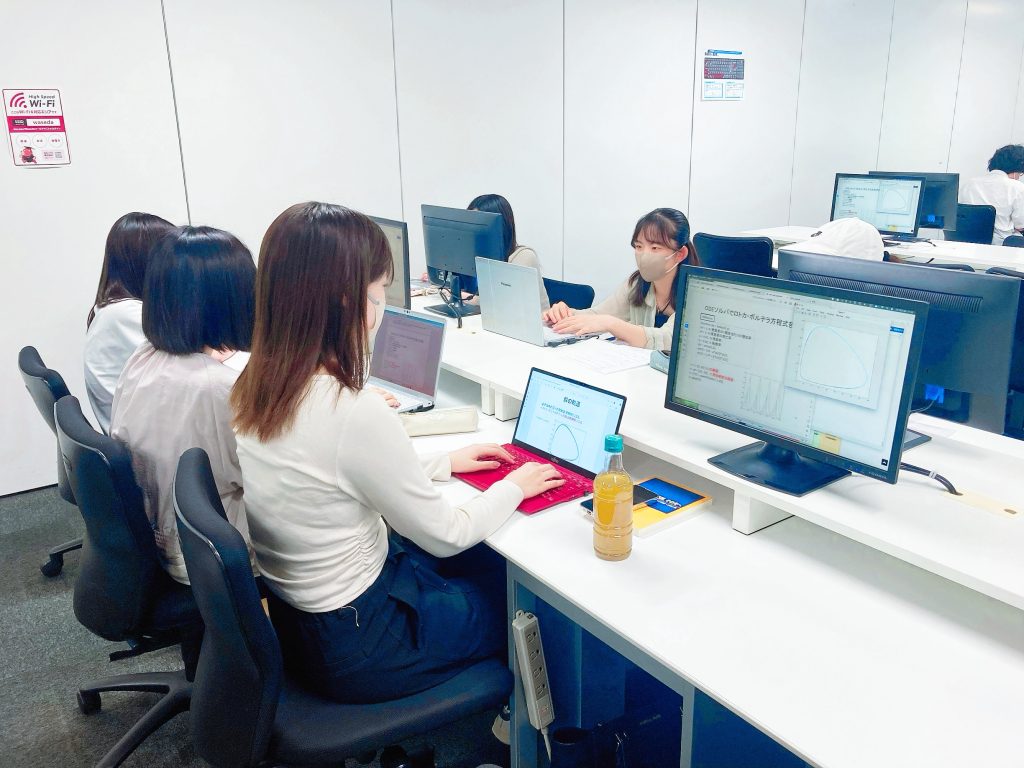早稲田大学 基幹理工学部
応用数理学科
Department of Applied Mathematics
School of Fundamental Science and Engineering, WASEDA University
News & Information [Archive].
Describe, Discover, Develop
— Applied Mathematics Opens Doors to the Future
As AI and data science revolutionize society, the power of mathematics lies at the root of this transformation. What is required in this era is not only mathematical knowledge or IT skills, but also the ability to apply mathematics to solve real-world problems. The Department of Applied Mathematics nurtures human resources who can connect abstract theories with concrete real-world issues through the three pillars of phenomenal mathematics, statistical mathematics, and information mathematics. Graduates are active in a wide range of fields, including IT companies, financial institutions, R&D departments of manufacturers, educational and research institutions, government offices, and consulting firms. Connect your curiosity to the future in a place where a deep understanding of mathematics and creative ideas meet.
Revealing Patterns
Mathematics reveals the hidden structures in natural phenomena, social dynamics, and data processing—making the invisible visible. This sense of discovery drives applied mathematics. Building on foundational education with the Mathematics Department, we explore cutting-edge mathematical science, statistics, and informatics to decode the world through mathematics.
Connecting Fields
Interdisciplinary research defines our department. We bridge mathematics with diverse fields including informatics, statistics, engineering, economics, medicine, biology, chemistry, and physics. Through these connections, we contribute to science and industry while pioneering new mathematical frontiers.
Creating Solutions
When abstract theory becomes transformative technology, the joy is unmatched. We develop climate prediction models, AI algorithms, financial risk assessment methods, and more—using mathematics to solve real-world challenges and create breakthrough technologies.

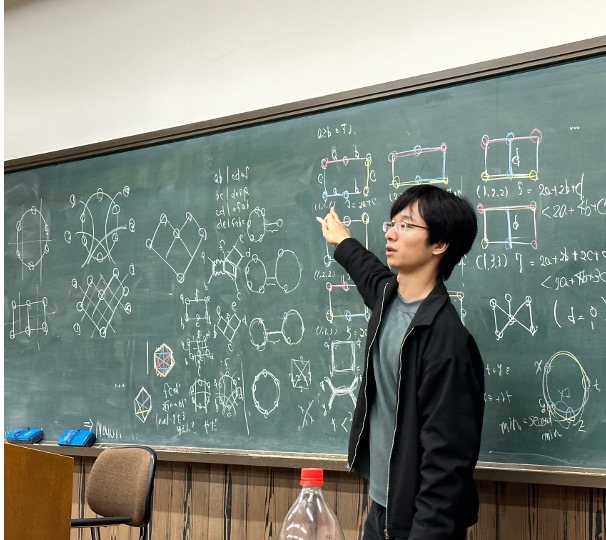
curriculum
Course Outline
Our specialized education in Applied Mathematics begins in the second year, following completion of the School of Fundamental Science and Engineering's common curriculum in the first year. In addition to foundational mathematics courses offered in collaboration with the Mathematics Department, we provide unique courses in Computer Science & Informatics, Probability & Statistics, and Physics & Chemistry. Students develop practical skills through applied mathematics laboratories, exercises, and seminars. In the fourth year, students join research laboratories to tackle cutting-edge applied mathematics research. Advanced graduate-level courses are also available for fourth-year students. A wide variety of elective courses allows students to tailor their studies to their individual interests.
A Featured Course in Probability and Statistics
In Professor Hiroshi Toyoizumi's "Mathematics of Business and Probability", students learn how to analyze and evaluate various business models using applied probability theory and queueing theory from operations research. Students first build a solid foundation in probability theory and stochastic processes essential for modeling and analyzing complex phenomena and systems, then explore applications in real-world contexts, such as inventory management, service industries, communication networks, computers, and production systems. The course combines lectures with student-participatory activities such as simulations to evaluate the efficiency of different order processing methods in store operations, allowing students to experience the mathematical insights behind business from both theoretical and practical perspectives.
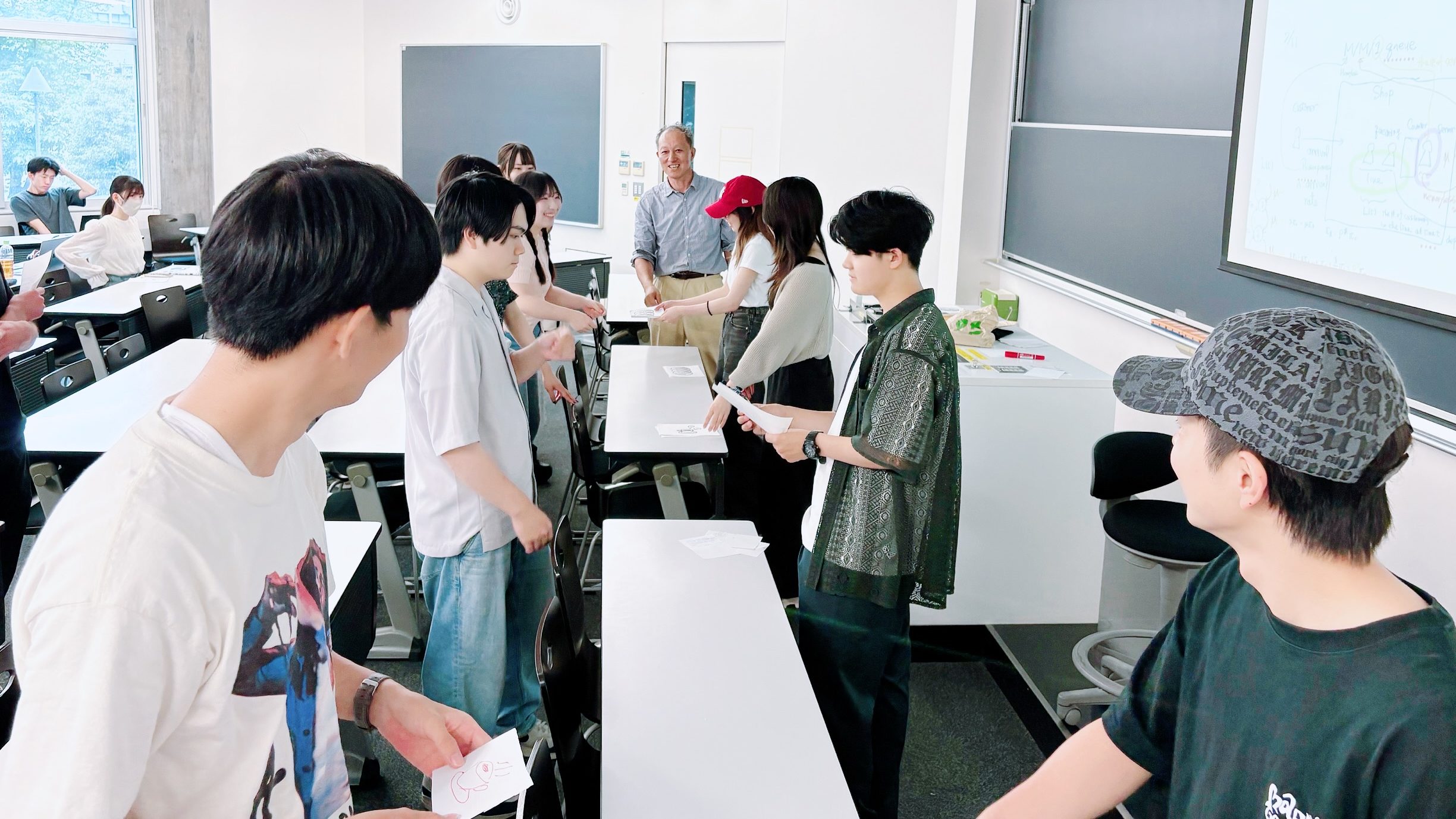
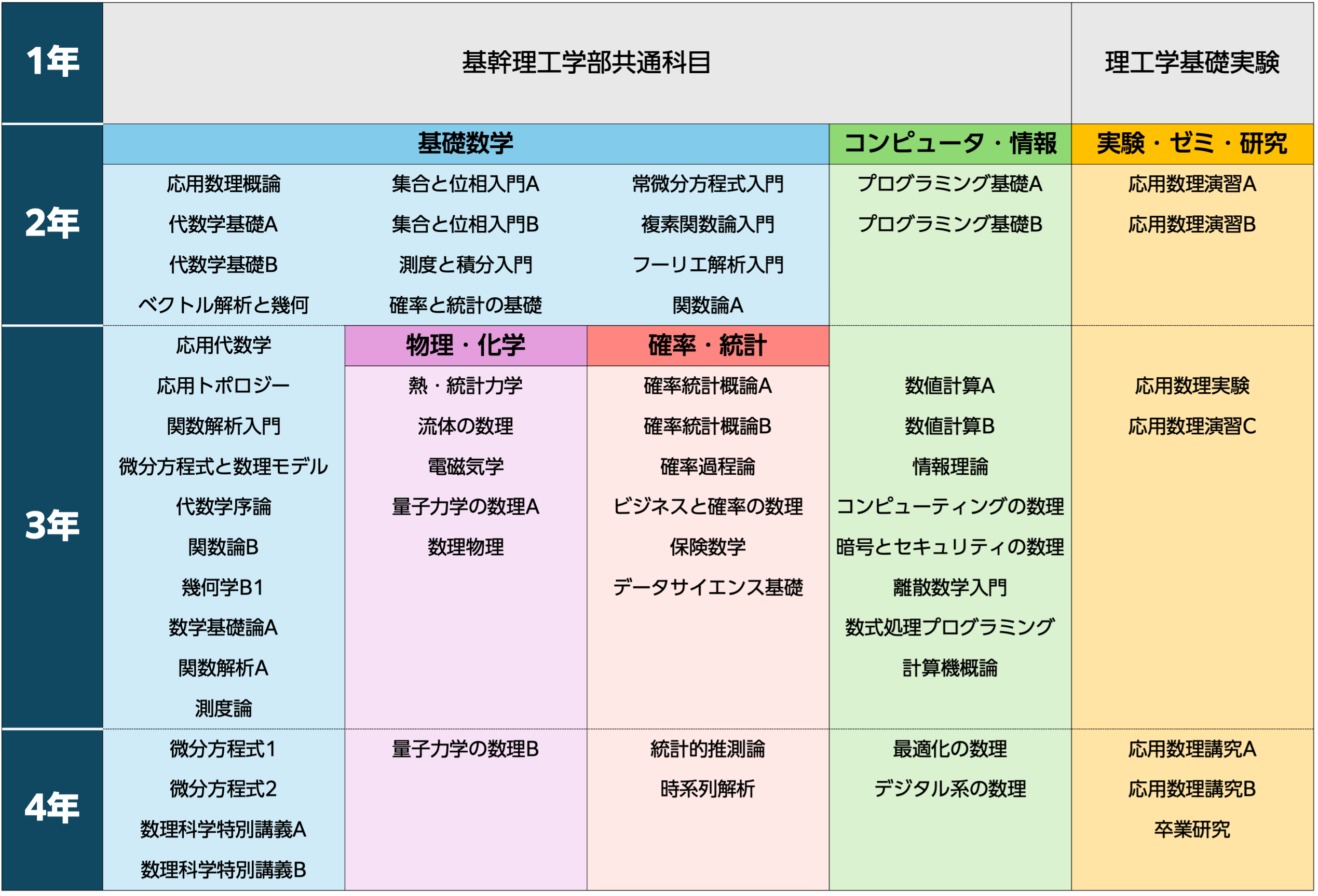
List of Professors
Faculty
In the Department of Applied Mathematics, faculty members in Mathematical Modeling, Statistical Science, and Mathematical Informatics conduct cutting-edge research and provide world-class education. These three fields overlap and interconnect to form the rich world of applied mathematics.
Mathematics of Phenomena
We take mathematical approaches to understand diverse real-world phenomena including nonlinear systems, solitons, mathematical physics, applied geometry, materials science, phylogenetic analysis, biological phenomena, natural phenomena, and social phenomena.
| Kimihisa Ito | Mathematical Materials Engineering |
| Toru Ohmoto | Singularity Theory, Topology |
| Kousuke Kuto | Nonlinear Partial Differential Equations |
| Daisuke Takahashi | Discrete Dynamical Systems |
| Akihiko Hirata | Mathematical Materials Engineering, Amorphous Structure |
| Kenichi Maruno | Mathematical Physics |
Statistical Mathematics
We research and develop mathematical methods for data analysis and decision-making. The scope include mathematical statistics, probability theory, time series analysis, financial and actuarial mathematics, biostatistics, data science, and machine learning.
| Yasutaka Shimizu | Stochastic Processes and Statistical Analysis |
| Hiroshi Toyoizumi | Applied Probability, Operations Research |
| Momoko Hayamizu | Discrete Mathematics, Algorithm Theory, Computational Biology |
| Yan Liu | Mathematical Statistics, Computational Statistics, Time Series Analysis |
Information Mathematics
We explore mathematical approaches to information and computation, including information theory, coding theory, cryptography, verified numerical computation, optimization, graph theory, and algorithm theory.
| Takeshi Ogita | Numerical Analysis |
| Masahide Kashiwagi | Numerical Analysis |
| Toshiyasu Matsushima | Information Theory and its Applications |
| Tsuyoshi Miezaki | Algebraic Combinatorics, Coding theory, Discrete Mathematics |
| Jun Muramatsu | Information Theory and its Applications |
Career Paths after Graduation
Future Career Options
Main Career Destinations
Click to view representative employers
Career Paths after Bachelor's Degree
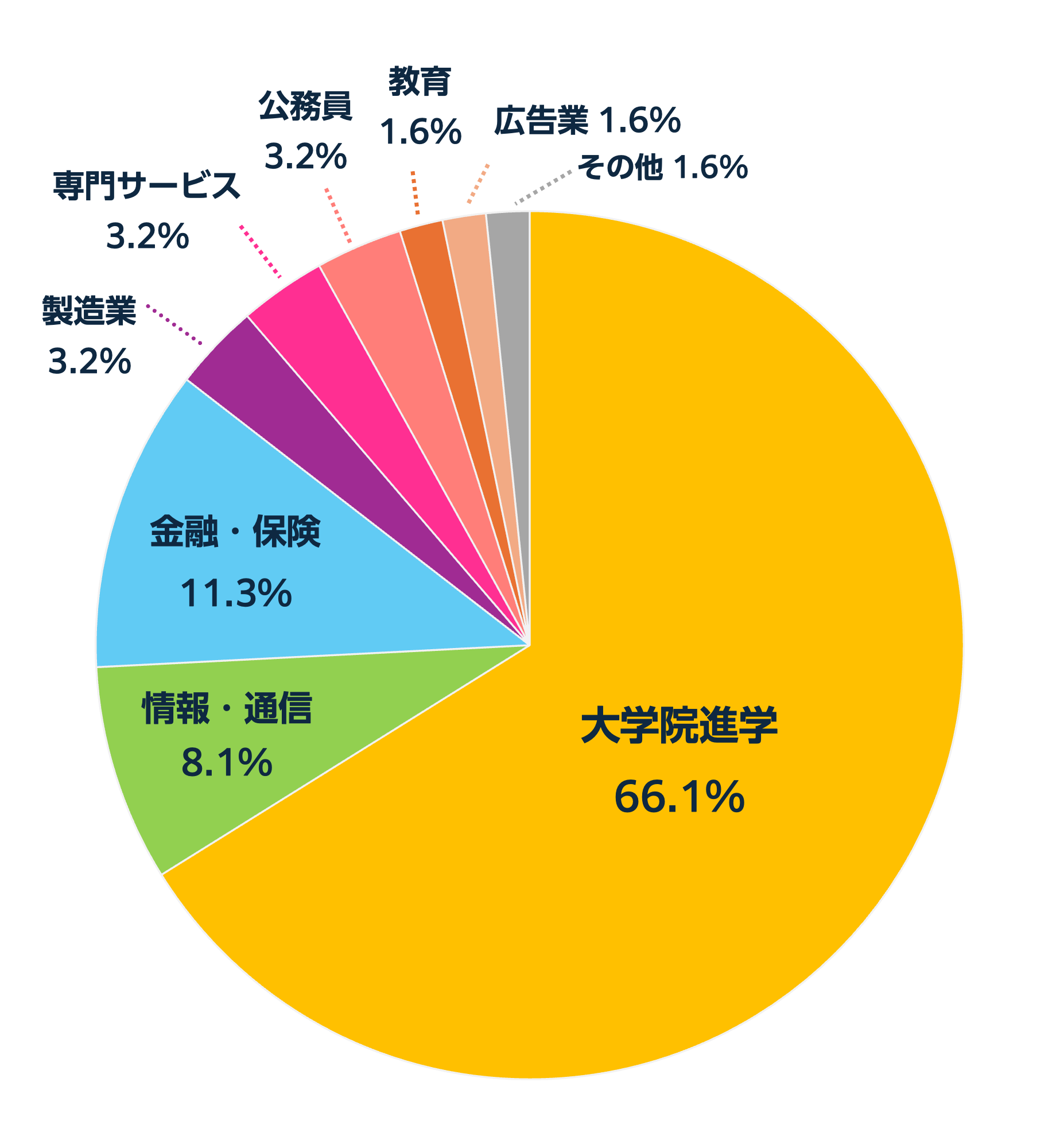
Many students (66.1%) pursue graduate studies to deepen their expertise in applied mathematics. Our department also has strong industry connections, with graduates excelling in IT companies (8.1%), finance (11.3%), trading companies, and think tanks. Career support includes departmental recommendation quotas.
Career Paths after Master's Degree
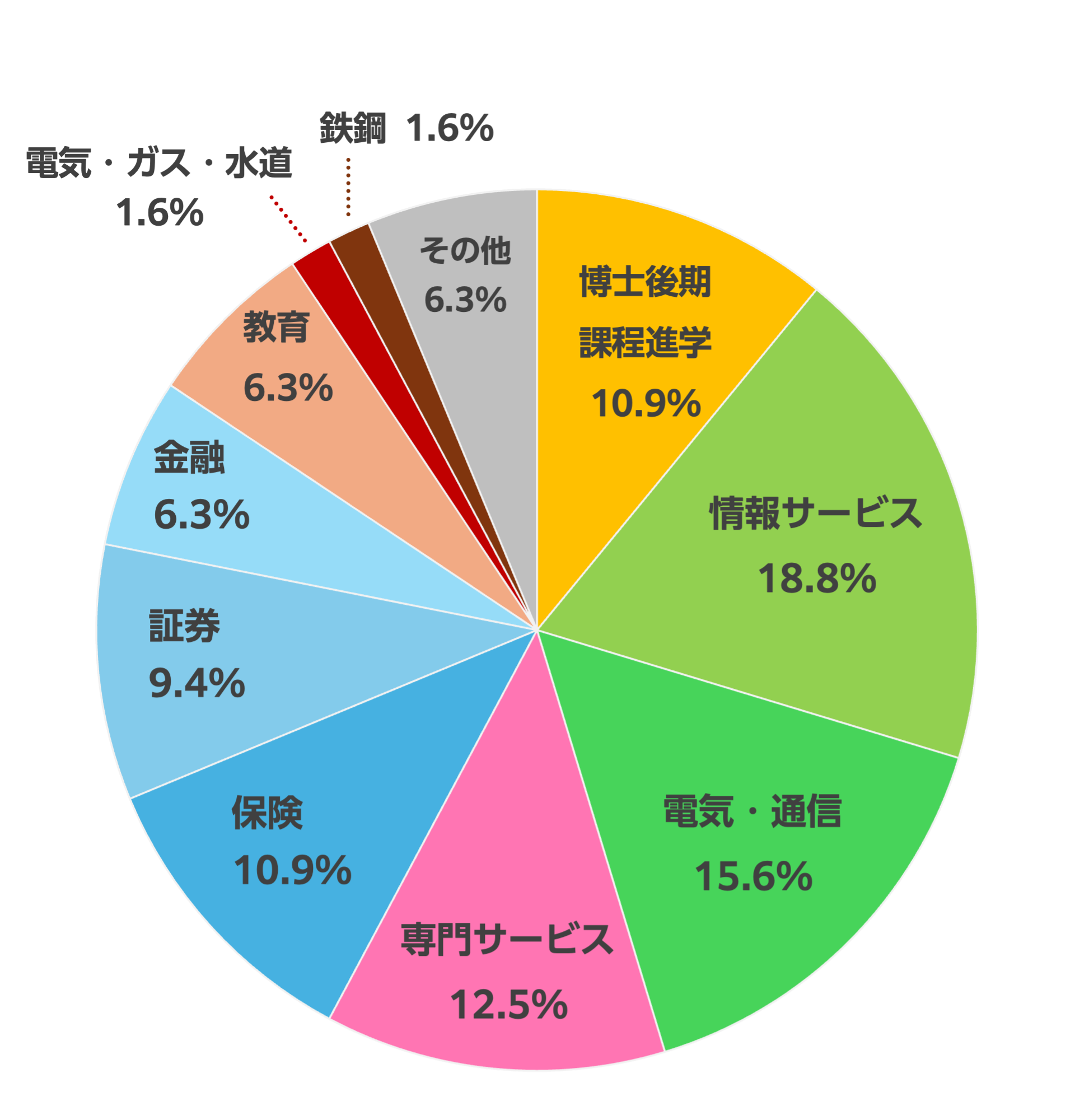
Master's graduates from our Applied Mathematics program pursue diverse careers leveraging their strengths in mathematics, informatics, and statistics, such as data scientists, systems engineers, software developers, IT consultants, quantitative analysts, actuaries, and more. Students can also advance to doctoral programs to further develop their expertise in mathematical sciences.

